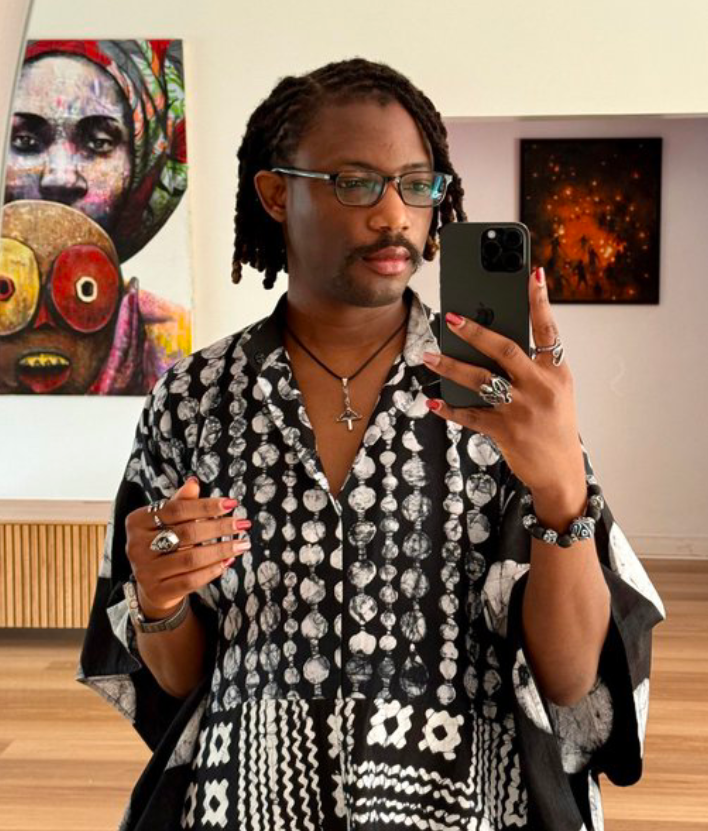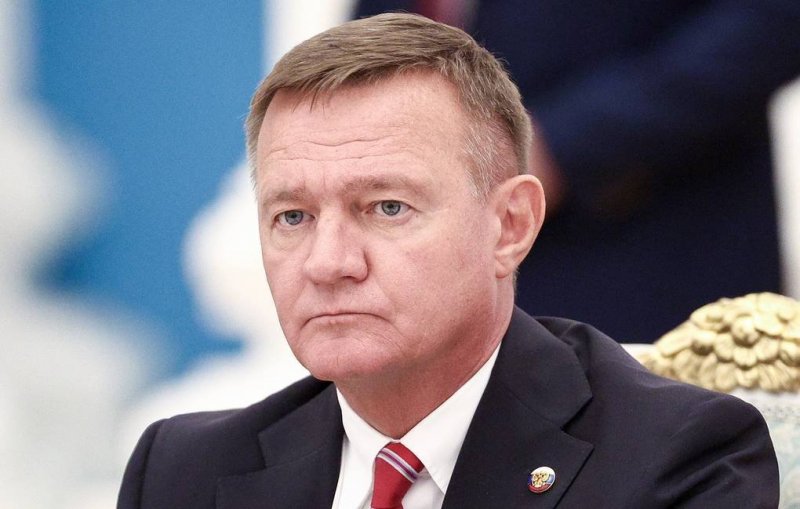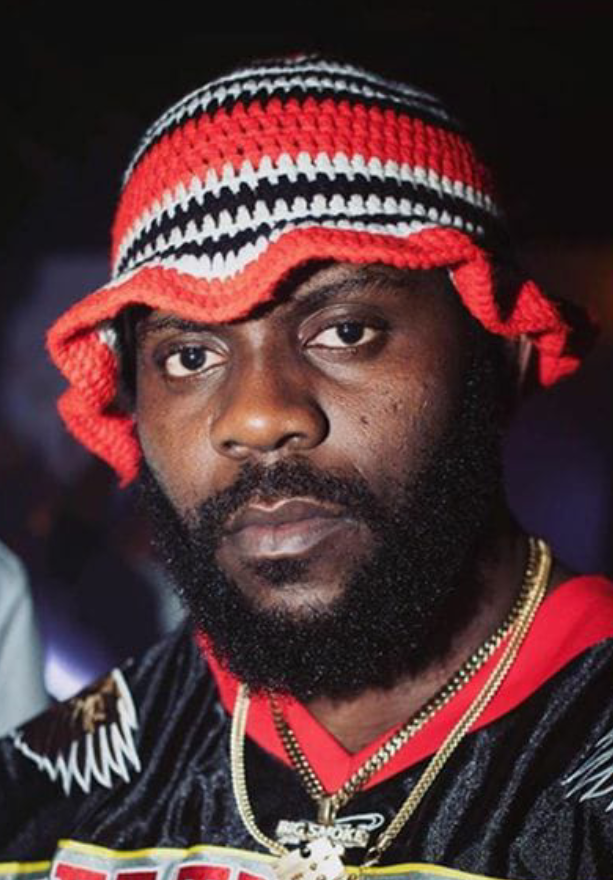
Shockwaves at Paystack: Co-Founder Ezra Olubi Terminated Amid Allegations of Misconduct
In a stunning development that has sent shockwaves through the tech community, Paystack, one of Africa’s leading fintech companies, has reportedly terminated the employment of its co-founder, Ezra Olubi, over allegations of sexual misconduct. The announcement has ignited widespread discussion online, leaving many in the business and tech sectors grappling
In a stunning development that has sent shockwaves through the tech community, Paystack, one of Africa’s leading fintech companies, has reportedly terminated the employment of its co-founder, Ezra Olubi, over allegations of sexual misconduct. The announcement has ignited widespread discussion online, leaving many in the business and tech sectors grappling with questions about corporate governance, due process, and the accountability of high-profile executives.
The controversy began when allegations against Olubi surfaced and quickly gained traction on social media platforms, drawing intense scrutiny from the public and media alike. In response to these circulating claims, the Board of Directors at Paystack placed Olubi on suspension and launched what they described as an “independent” investigation into the matter. The company did not immediately provide details about the nature of the allegations, nor the scope of the investigation, leaving room for speculation and concern among stakeholders.
For his part, Olubi maintained a stance of restraint during the initial stages of the investigation. In a statement addressing the situation, he explained that he refrained from making public comments to avoid interfering with the investigative process and to allow for what he anticipated would be a fair, thorough, and unbiased review. Olubi noted that this silence inadvertently created a vacuum, which allowed assumptions and misrepresentations to proliferate unchecked across social media and news outlets. “Those who know me personally or professionally understand that the posts being circulated do not reflect my conduct or the way I have lived my life,” Olubi asserted, emphasizing that he has always strived to conduct himself in a manner that respects everyone’s dignity and safety.
Despite his cooperation and his long-standing position as a co-founder, technical leader, and board member at Paystack, Olubi revealed that his termination came abruptly and without warning. On Saturday, 22 November 2025, he was informed that his employment had been ended, even though the independent investigation was reportedly still ongoing. Olubi highlighted that this decision was made without a meeting, hearing, or opportunity for him to respond to the allegations—a move he claims was in clear contravention of both the terms of his suspension and Paystack’s internal policies. “As co-founder, technical leader and long-serving Board member, I have been part of instituting the systems and processes that underpin Paystack’s internal operations,” he stated. “I engaged with this investigation in good faith and cooperated fully with the Board’s directives on that basis.”
The termination of such a high-profile executive has inevitably drawn a wide range of reactions. On one hand, some industry observers argue that Paystack’s decision underscores a growing trend among global companies to take swift action in response to allegations of misconduct, particularly when they involve senior leaders. They point out that in the digital age, reputational risks can escalate quickly, and companies are often compelled to act decisively to preserve the trust of investors, partners, and customers. Others, however, have expressed concern over the apparent lack of due process, questioning whether the company adhered to its own policies and whether Olubi was afforded a fair opportunity to defend himself before such a drastic measure was taken.
Legal experts note that this case could have broader implications for corporate governance in Nigeria’s tech sector. The abrupt nature of the termination, particularly while an investigation was still purportedly ongoing, raises questions about the clarity of internal procedures and the protection of employee rights—even at the highest levels of a company. Olubi’s legal team has confirmed that they are reviewing the process that led to his termination and will take any steps they consider appropriate. While no formal legal action has yet been announced, the situation has set the stage for a potential legal battle that could attract national and international attention.
The fallout from this development is likely to reverberate far beyond Paystack. As one of Nigeria’s most prominent fintech companies, Paystack has been widely regarded as a trailblazer in digital payments, with a track record of innovation and successful expansion. The news of internal conflict at such a high level threatens to overshadow the company’s achievements and may influence how investors and partners view the firm moving forward. Stakeholders are keenly watching how Paystack will manage communications and internal morale in the wake of this controversy, particularly as the tech ecosystem continues to expand and face increasing scrutiny from regulators and the public.
For Olubi himself, the termination marks a dramatic turning point in a career that has been closely associated with Paystack’s meteoric rise. Having played a pivotal role in the company’s development and technical leadership, Olubi has been a visible figure in the Nigerian startup ecosystem, frequently cited as an example of entrepreneurial success and innovation. His public statement underscores his commitment to his personal and professional integrity, while also signaling a potential challenge to the company’s handling of the matter. “My legal team is now reviewing the process that led to my purported termination, including its consistency with internal policies,” Olubi explained. “They will take the steps they consider appropriate, and I will not be commenting further on this matter at this time.”
The timing of these events has also drawn attention. The allegations and subsequent termination come at a moment when discussions around workplace misconduct, accountability, and gender dynamics in corporate environments are increasingly at the forefront of public discourse. Companies around the world are under pressure to create safe, equitable workplaces while also maintaining transparent and just procedures for addressing complaints. The Paystack-Olubi case may become a significant reference point for other startups and tech companies in Nigeria and across Africa, highlighting both the challenges and responsibilities that come with managing high-profile personnel issues.
As the situation develops, the wider public and industry watchers are left to parse incomplete information and await further clarity. Paystack has not released a detailed statement regarding Olubi’s termination beyond confirming that the board took action, leaving questions about the investigation and the company’s internal decision-making processes largely unanswered. Meanwhile, social media continues to buzz with speculation, support, and criticism, reflecting the high-profile nature of both the company and the individuals involved. The incident has, in a sense, become a litmus test for how the Nigerian tech ecosystem handles allegations of misconduct, leadership accountability, and corporate governance transparency.
Ultimately, the termination of Ezra Olubi from Paystack is more than just an internal personnel matter; it is a story that touches on issues of ethics, leadership, and the evolving standards of corporate responsibility in the modern business world. As both Paystack and Olubi navigate the aftermath, the tech community and broader public will be watching closely to see how due process, fairness, and integrity are upheld—or challenged—amid the pressures of reputation, public scrutiny, and business continuity. This case serves as a potent reminder that even in the fast-paced, innovation-driven world of tech, the principles of accountability, justice, and transparent governance remain vital.
Share this post
Related Posts

SHOCKWAVES IN KREMLIN: Ex-Transport Minister Roman Starovoit Found Dead Hours After Putin Sack
In a grim turn of events that has sent shockwaves through the Russian political establishment,...

“They Never Come Back” – Odumodublvck Speaks on Loyalty, Fame and the Harsh Realities of the Music Industry
Nigerian rapper Odumodublvck has sparked fresh conversations about loyalty, fame and survival in the music...

Celebrity Makeup Artist Black Koko Speaks Out on Stigma Against Feminine Men and Hidden Hypocrisy
Nigerian celebrity makeup artist Black Koko has ignited a nationwide conversation after openly discussing the...